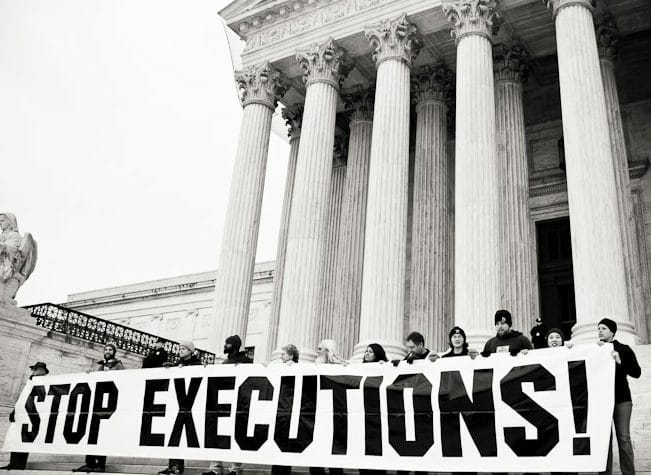Anadi Tewari
“The Death Penalty is an abolishment or abridgement to the right to life. The Constitution makes the right to life non-derogable. It does not, therefore, authorize the death penalty because the death penalty derogates from right to life,” the Supreme Court of Malawi observed while holding the death penalty unconstitutional.
The Supreme Court of Malawi by 8:1 ratio has allowed an appeal filed by one Khoviwa who was aggrieved of the decision of the High Court of Malawi, by virtue of which he was sentenced to the death penalty.
“The essence of the right to life is life itself-the sanctity of life. The right to life is the mother of all rights. Without the right to life, other rights do not exist. The death penalty not only negates, but also abolishes the right,” the Court observed in its judgment.
While referring to the provisions of the Constitution of Malawi, the Court remarked that the Constitution does not provide for the death penalty; on the contrary, it prohibits derogation from the right to life. Derogation from the right to life is prohibited directly and clearly by the Constitution, the Court strictly noted.
“Section 46 (1) of the Constitution prohibits directly and clearly the legislature from abridging or abolishing rights in the Constitution by legislation. As we see shortly, the authorized way of abridging rights is by limitation of rights under the Constitution. The death penalty is an abolishment or abridgement of the right to life. The legislature, therefore, cannot, under section 46 (1) of the Constitution initiate legislation – as they did in 2010 -that prescribes the death penalty.” “Section 46 (1) of the Constitution, besides banning the National Assembly legislating on abolishment or abridgement, prohibits the Executive and agencies of Government from taking action that abolishes or abridges rights – including the right to life,” the Supreme Court further observes.
The Court took note of provisions of certain International Conventions that provide for the right to life as the core fundamental right and has to be protected by law and no one shall be arbitrarily deprived of his life.
- Article 2 and Article 3 of the Universal Declaration of Human Rights, 1948
- Article 2, Article 4, Article 6 and Article 26 of the International Covenant on Civil and Political Rights, 1966
While understanding the legality of the death penalty, the Supreme Court went on to read Section 16 of the Constitution of Malawi which provides for the ‘right to life’ and states:
“16. Every person has the right to life and no person shall be arbitrarily deprived of his or her life:
Provided that the execution of the death sentence imposed by a competent court on a person in respect of a criminal offence under the laws of Malawi of which he or she has been convicted shall not be regarded as arbitrary deprivation of his or her right to life.”
In regard to the foregoing provision, the Court relied on its own judgment in Kafantayeni and Others v. Attorney General [(2005) Constitutional Case No. 12 (MHC) (Bt) of 27 April 2007] where the Court made it clear that “Section 16 is not prescribing a death penalty.”
Section 45 of the Constitution of Malawi provides: “No derogation from rights contained in this Chapter shall be permissible save to the extent provided for by this section and no such derogation shall be made unless there has been a declaration of a state of emergency within the meaning of this section.”
In light of the foregoing provision, the Court observed that Section 45 is a direct prohibition. Under section 45 (1) of the Constitution, the supreme law of all laws of Malawi, the death penalty, since it is a derogation from the right to life, is impermissible. All Malawi’s Penal Code provisions prescribing death as one of the sentences must be read as meaning the maximum prison sentence – life imprisonment.
“If life imprisonment becomes the maximum sentence, where it is not mandatory, by fiction, it cannot be imposed, reserved as it were for the worst instance of a crime. Courts are, therefore, likely, to pass a prison term of years. Those who have served long periods of their life or long sentences are likely to get shorter terms or immediate release,” the Malawi Supreme Court remarked while declaring the death penalty unconstitutional.
Malawi is a landlocked country in south-eastern Africa. Its capital is Lilongwe.
Case: Khoviwa v. Republic [Miscellaneous Criminal Appeal No. 12 of 2017]

